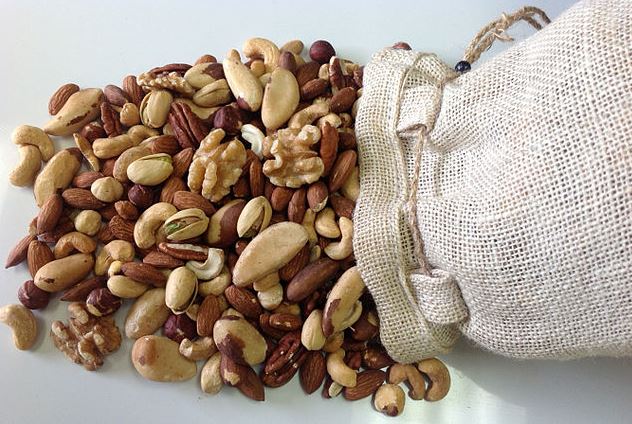These days, it’s practically common knowledge that nuts are good for you. Well, unless you have a nut allergy! Nuts are rich in healthy fats, protein, fiber, vitamins, minerals, antioxidants, plant sterols, and flavonoids. Given this, nuts can help with weight loss, metabolic syndrome and type-2 diabetes, lowering cholesterol and triglyceride levels, reducing the risk of heart attacks and strokes, and in the reduction of inflammation. Quite impressive, eh?
What’s your type?
While some nuts are higher in one vitamin or mineral than another, each type still comes in three varieties: conventional, organic, and sprouted. Let’s talk about each…
Conventional
Conventionally grown nuts are subject to pesticides. Pesticides are meant to be lethal to pests, but not to the species who consume the nuts. However, there can be serious consequences from pesticide use. These include: chronic diseases and worldwide deaths (about a million people per year!), negative impacts on the environment (contamination of soil, water, turf and other vegetation), toxicity to other organisms like fish, birds, etc. Given that many nuts contain a high amount of fat and oil, they easily absorb pesticides.
Organic
After hearing all that about pesticides, you’re probably thinking: I should buy organically grown nuts and call it a day. That’s not bad advice. They will be better for you and the environment. Some people even like the taste better. Organic foods are free of GMOs (genetically modified organisms), they’re often fresher, and they may contain more nutrients. For example, there’s evidence suggesting a significant increase in some flavonoids in organic foods compared to conventionally grown foods, which translates to more antioxidants. Well, that settles that, or does it? Enter sprouted nuts and the plot thickens…
Sprouted
Sprouting is a process whereby a seed is germinated. This process doesn’t just apply to nuts, but can include beans, grains and other foods as well. After nuts are sprouted, they are easier to digest, more bioavailable, more quickly absorbed, and harmful compounds like anti-nutrients can be destroyed or at least minimized. Compared to both conventional and organic nuts, these will be the most expensive. Please keep in mind that even sprouted nuts can contain pesticides, so opt for organic, sprouted nuts whenever possible.
Smile
Most people aren’t aware how the consumption of anti-nutrients (e.g. phytic acid) can negatively impact us. For instance, too much can result in: tooth decay and the interference of function in certain organs. This occurs because anti-nutrients compromise the absorption of minerals we’d otherwise receive. While many nuts contain significant levels of phytic acid, getting sprouted varieties can help neutralize them, another added benefit. Hopefully that settles that debate 🙂









Read 0 comments and reply